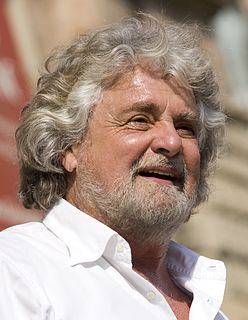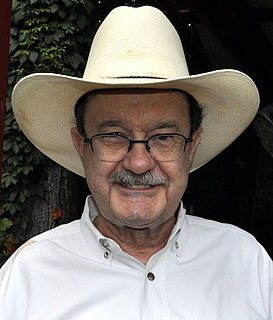A Quote by Jeremy Rifkin
We have come to discover what we suspect is a new political mindset emerging among a younger generation of political leaders socialized on Internet communications. Their politics are less about right versus left and more about centralized and authoritarian versus distributed and collaborative.
Related Quotes
The revolution here is from hierarchical to lateral power. That's the power shift. So increasingly a younger generation that's grown up on the internet and now increasingly distributing renewable energies, they're measuring politics in terms of a struggle between centralized, hierarchical, top-down and closed and proprietary, versus distributed, open, collaborative, transparent. This shift, from hierarchical to lateral power, is going to change the way we live, the way we educate our children, and the way we govern the world.
Whether we're talking about what the role of the government is, what you think of the United Nations, political leaders or how to respond to [Hurricane] Katrina and whether it had anything to do with race, across a wide variety of issues we see differences between mainstream black and white American opinion that dwarfs anything in American public opinion, period. Democrat versus Republican, men versus women, conservative versus liberal, the black/white divide is the biggest, one of the biggest in the world, and certainly the largest gap in the United States.
The classic one for me is one of my favorite images - left-versus-right political-spectrum image. I was trying to visualize the concepts on the political spectrum. I'm left-leaning, and I discovered as I was doing it that I had an impulse to make the left-hand side appear better than the right-hand side. That was manifesting in the way I was choosing certain words, framing certain ideas. I shared it with a few people, and they all said, "Oh my God, this is really biased." I hadn't seen it at all.
I think the single most important political distinction today is actually between open-minded versus closed-minded, and that's why I think this crosses the boundaries of traditional - center-right and center-left have much more in common with each other right now than the right does with the center-right, and the left does with the center-left.
Independent of the critique I'm making, I'm just trying to paint a more comprehensive portrait of American religion than you get from a right versus left, religious conservatives versus secular liberal, believer versus atheist, binary. Too often, we just look at religion in America through that kind of either/or lens. I think it's much more complicated than that.
What we're really debating is not security versus liberty, it's security versus surveillance. When we talk about electronic interception, the way that surveillance works is it preys on the weakness of protections that are being applied to all of our communications. The manner in which they're protected.




































